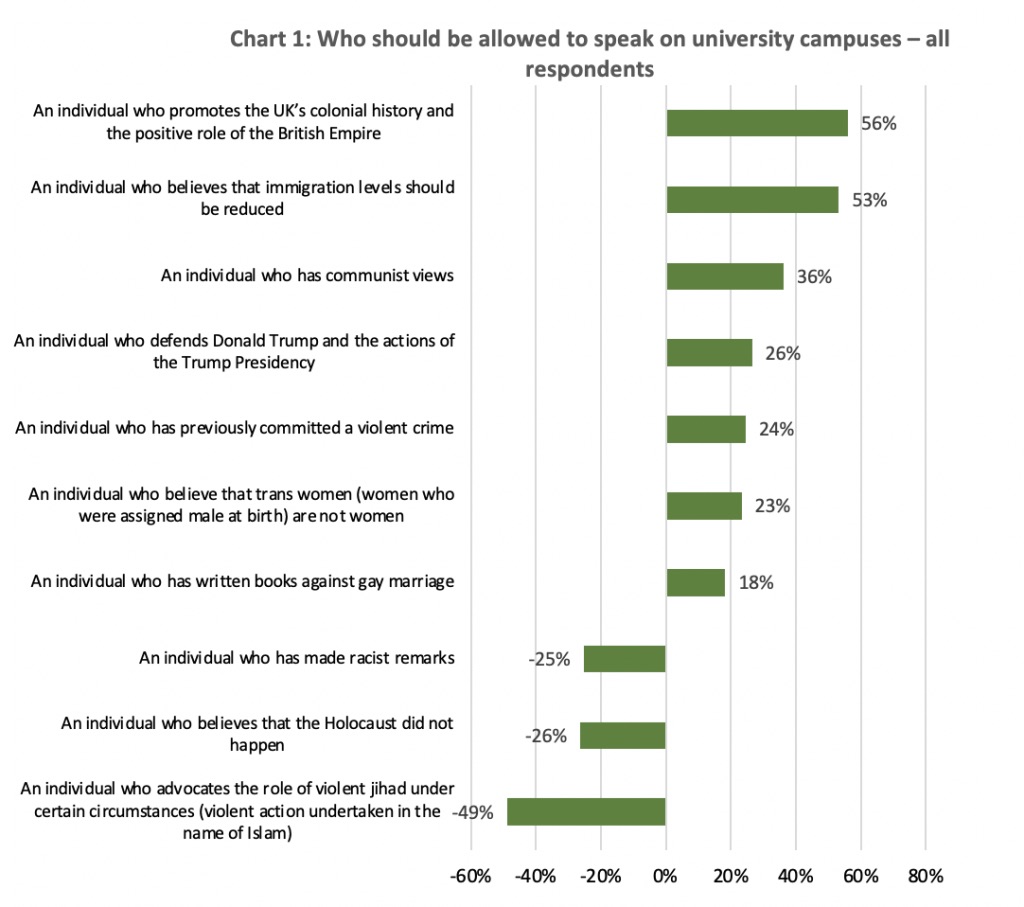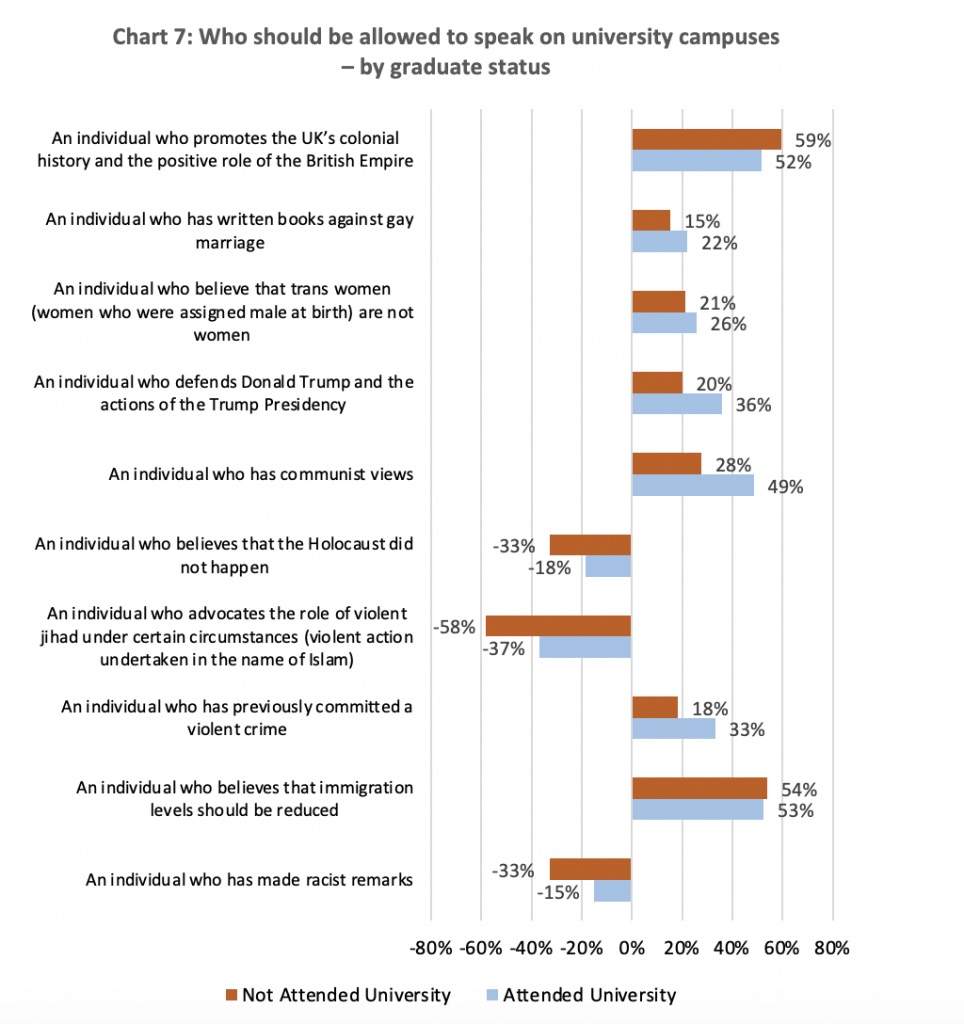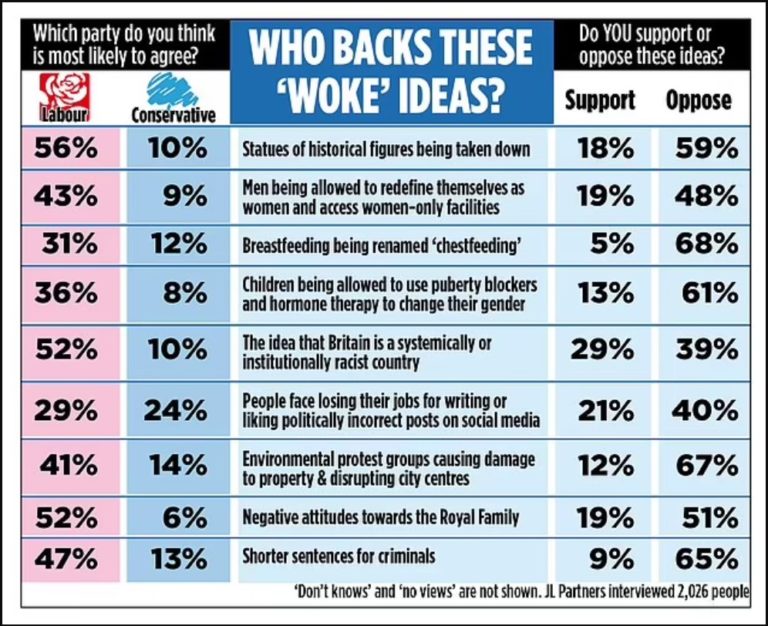The young are both “woke” and up for a debate on campus
Jim is an Associate Editor (SUs) at Wonkhe
Tags
This morning HEPI has published some polling carried out by Public First commissioned in partnership with the UPP Foundation. It tests opinion on whether controversial speakers should be allowed on campus – even if they don’t agree with their views.
The principle of allowing a Holocaust denier the right to speak at a university is one of the least supported, with a net percentage of -26 per cent thinking they should be allowed to speak (29 per cent say “should” and 55 per cent say “should not”). Meanwhile a net 56 per cent of the public would support someone who promotes the UK’s colonial history and and the positive role of the British Empire.

The interesting bit where the polling compares the responses of graduates versus non-graduates. Perhaps surprisingly given some of the coverage, graduates are more pro-free speech than non-graduates on 8 out of 10 of the examples – with non-graduates only being more supportive of speakers defending the Empire and (more narrowly) calling for restrictions on immigration.
So on the principle of campus free speech regardless of whether the views on offer are “woke”, the polling suggests that it’s non-graduates that would prefer a “chilling effect” on campus.

It’s almost as if this whole agenda is more about the actual controversial views than controversy and free speech per se.
Yesterday the “Campaign for Common Sense” sold in some polling to the Mail on Sunday positioning political correctness and wokery on one side, and “common sense” on the other:

The focus was on political party perceptions, but a dig into the splits deserves reflection:
| Net support amongst age groups for "wokery" | 18-34 | 35-54 | 55+ |
|---|---|---|---|
| Statues of historical figures being taken down | 29% | 3% | -32% |
| Men being allowed to redefine themselves as women and access women-only facilities | 31% | 1% | -32% |
| Breastfeeding being renamed ‘chestfeeding’ | 42% | -3% | -39% |
| Children being allowed to take puberty blockers and have hormone therapy to change gender | 43% | -6% | -37% |
| The idea that Britain is a systemically or institutionally racist country | 21% | -4% | -24% |
| People facing disciplinary action or losing their jobs for writing or liking politically incorrect posts on social media | 7% | -1% | -5% |
| Environmental protest groups causing damage to property & disrupting city centres | 24% | -4% | -29% |
| Negative attitudes towards the Royal Family | 24% | -5% | -28% |
| Shorter sentences for criminals | 27% | -2% | -25% |
As you can see, 35-54s are pretty evenly split on almost every issue – the results there are all pretty much in margin of error territory. But the values gulf between 18-35 year olds and 55+ is vast – and probably so vast that it’s very difficult for any political party to capture both ends of the gulf.
Whether it’s university that actually “does this” to under 35s is a different question to “what should we signal to the over 55s we are doing about the young”.
The splits by other factors are nothing in comparison to age, by the way. And they’re even more extreme when you filter out 18-24s and 65+.

